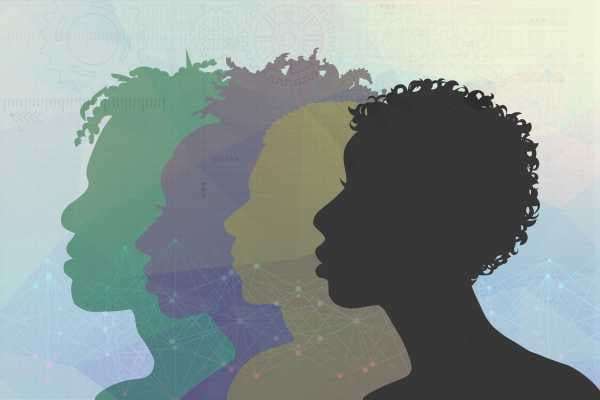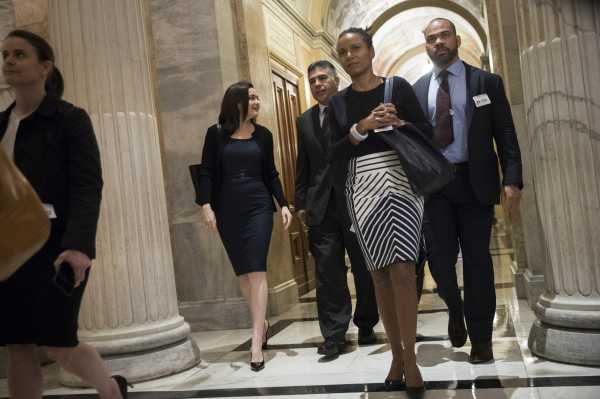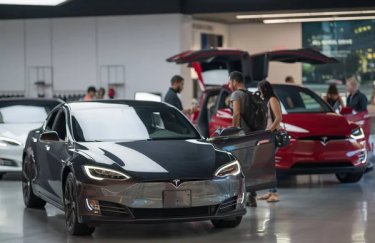
Black Americans are frequent users of technology, and have helped build social media platforms like Twitter and Instagram into the giants they are today. But they aren’t reaping the same economic benefits of the tech boom as white Americans, and low rates of black employment in the tech industry are a large part of the reason why.
A new study released Friday sheds light on this issue. The State of Black America 2018, a report published annually by the National Urban League, compares how black and white people fare in a number of areas, including housing, economics, education, social justice, and civic engagement.
This year’s report pays particular attention to black Americans’ access to jobs in the tech industry and STEM (science, technology, engineering, and mathematics) fields. The study reveals that while black people are one of the racial groups most likely to use smartphones and have created thriving communities on platforms like Twitter, those high rates of usage haven’t translated into employment.
And this is largely because the tech industry has failed to hire black STEM grads and transition them into careers in Silicon Valley, where many of these jobs are based.
“In the vast majority of [social media and tech] companies, fewer than five percent of the workforce is African American,” the authors of the report note. “By contrast, at least half of the workforce in these companies is white.”
Marc Morial, CEO of the National Urban League, notes that this isn’t new — black Americans have repeatedly been left behind when America’s technology makes a leap forward, be it when slavery and Reconstruction blocked black people from the benefits of farming technology, or when technological revolutions in the North were less accessible to poor black people fleeing the South. Over generations, the effect of this lack of inclusion has compounded, leading us to the disparities that exist today.
And, as the report indicates, none of this happens in a vacuum. When black workers are shut out of higher-income jobs, like in tech, it adds to the already significant income gap — the median income for white households is $63,155, while it’s only $38,555 for black households. There’s a persistent wealth gap as well, which hasn’t improved much since the 1960s.
“We’re trying to shine a spotlight on the fact that this is an area where the country has to improve,” Morial says.
Silicon Valley has faced mounting criticism for its lack of diversity
Unfortunately, the tech world’s lack of diversity is a stubborn problem that doesn’t seem to be going away. Despite media attention and criticism, top companies continue to hire small numbers of black employees. At companies like Uber, Twitter, Google, and Facebook, fewer than 3 percent of tech workers identify as black.
In 2015, the Congressional Black Caucus launched an extended effort to press Silicon Valley to boost its black employment numbers, with several members of Congress traveling to meet with various tech industry leaders. The efforts have led to some change — the 3 percent figure above actually reflects slight growth at places like Facebook.

The caucus has continued to pressure tech companies to improve further. When Facebook CEO Mark Zuckerberg testified on Capitol Hill last month about Facebook’s ability to protect users’ privacy, black lawmakers took him to task for his company’s persistent lack of diversity, saying that Facebook “does not reflect America.”
And on April 30, lawmakers traveled to Silicon Valley for a third time to engage in a series of discussions with tech companies. Some members, including Rep. Maxine Waters, have threatened that lawmakers could introduce stricter measures to regulate the industry if companies can’t improve on their own.
The CBC members argue that efforts to increase black employment are not simply due to the economic opportunities presented by a high-paying tech job but are also about increasing protections for minority users. Black people are often targeted on social media and other internet-based platforms, facing racism on Twitter, discrimination from Airbnb hosts, or exploitation from fake Facebook pages.
Morial argues that while the tech industry has said promising things about improving diversity, it needs to do more — in hiring as well as in increasing training and investment in black students and improving educational pipelines.
The new report shows that racial disparities extend into most sectors
The State of Black America report also compares white and black equality and access to opportunities in other areas. Not much has changed since last year, but there has been some slight progress in the areas of economics and education, and slight declines in the areas of civic engagement and health.
This year’s report may garner extra attention since it marks not only the first full year of the Trump presidency but also the 50th anniversary of several civil rights milestones, like the assassination of Martin Luther King Jr. and the passage of critical legislation like the Civil Rights Act of 1968.
The changes come on the heels of the league’s 2017 report, “Protect our Progress,” a nod to developments under President Barack Obama’s eight years in office. When I spoke to Morial last year, he said he was worried that those gains could be reversed by Trump, pointing to the Justice Department’s efforts to roll back police reform enforcement as his most immediate concern.
Given the results of the most recent report, Morial’s concerns have only deepened. “There is a long list of efforts to undercut civil rights enforcement, the likes of which we haven’t seen since the Reagan years,” he says. It remains to be seen if the small progress that’s been made will continue, and what the next year will hold.
Sourse: vox.com






